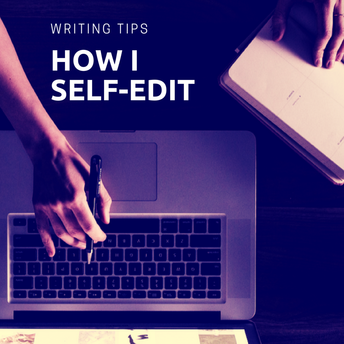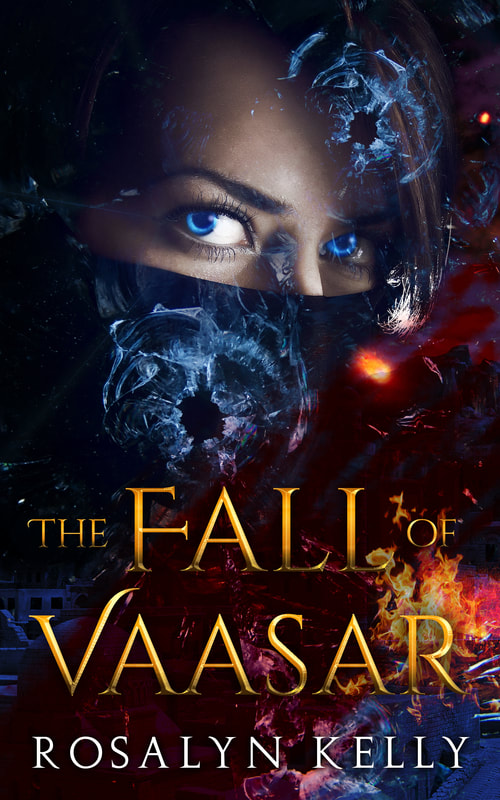|
So you’ve written a first draft, be it of a scene, short story, chapter, entire book. And now comes the fun part – at least, I find it fun. Some writers find editing a slog, procrastinate over doing it, get overwhelmed or down because they think what they’ve written is not good enough. I’m possibly in the minority, but I find editing exhilarating – I’m improving my writing. Every time I ‘touch’ my work it gets better, until I read it and think ‘wow, I wrote that’. That is the feeling you want to get to, whether that takes one edit or eleven.
A running joke between two friends of mine whilst I was writing my epic fantasy novel Melokai, was that I always used one particular hashtag when posting on my social media channels. Apparently, I always seemed to be #amediting and they asked me when I was likely to stop #amediting, or asked me how the #amediting was going. In truth, it did take me a long time to #amediting but it was worth it in the end! Here’s how I edit, rewrite, edit, until I get to the point where I’m wow-ing myself. (I’m assuming you’ve written on a computer rather than by hand. If by hand then type it up before you follow the below steps.) 1) Read your first draft through on screen and tweak as you go. This first read through is where you’ll hopefully spot – and fix – plot holes, major character flaws, scenes that don’t quite make sense, unnecessary dialogue etc. 2) Do a search for words ending in -ly and try to delete some e.g. only, slowly, desperately. They are often fillers and a sharper sentence could be created without these words. 3) Do a search for words that you use often and try to tweak them. In Melokai, I had a tendency to overuse the word ‘traipse’ for some reason, so I traipsed through the entire manuscript and changed traipse to other words, to cut down on all the traipsing. (See how annoying for a reader overuse of one word is?!) 4) Hunt out clichés and write something that is true to life. If you’ve written a sentence that you’ve read a hundred times before (and likely your readers will have read a hundred times before) then that is a cliché e.g. ‘all that glitters is not gold’ or he crept away with his ‘tail between his legs’. 5) Print out your writing and read it through, writing comments in the margins. Don’t make any amends to your document until you’ve finished the entire read-through. Then go through your notes methodically and edit on screen. I tick off each comment I’ve made with a felt tip pen to ensure I’ve not missed any. 6) Read your work aloud (either from the screen or from a print out) and make tweaks on the document as you go. Imagine you are giving a reading to an audience of avid literary fans and really put your all into the reading, doing the voices, adding dramatic pauses and so on. You’ll soon catch words or sentences that are awkward and don’t roll off your tongue. Anything you stumble over, you should tweak. 7) Add the ‘speak selected text’ function to your Word document. (If you write in other software and it doesn’t have a similar function then I’m sure there are apps you can find to speak aloud your work). It’s surprising how many times you can read your work and not spot glaring errors such as incorrect words (I had a few instances of using shoulder instead of soldier in my novella The Fall of Vaasar), names repeated too many times in one paragraph, sentences that go on too long, or all have the same structure. Go through your work sentence by sentence (yes, really!) and listen to the odd computer voice read it aloud to you. If you’re editing a novel, then this can take time, but honestly, I found it invaluable. (And the odd computer voice kinda became my friend…) 8) Print out your manuscript for a second time and read it through again, making notes in the margin. Read the whole thing before making those amends to your document. 9) Now this is the bit I enjoy the most, as it means I’m close to the end - send your word document to your Kindle or eReader and experience it as a reader would an ebook. Jot notes on a notepad if you spot any errors. It’s completely different reading it on your eReader device than on screen or printed A4 paper and it’s amazing how much you can improve the language, sentence structure, dialogue etc. in this way. The change in format is also good for picking up incorrect words or errors at the beginning and end of sentences, that I tended to scan over when reading on screen. 10) Make the amends from your ebook read through and if you still don’t feel proud of what you’ve written, then read it through on screen again and make final edits. But, really by this point you should be done. If all you’re doing is quibbling over a comma then stop! And that’s it, you should have a manuscript ready to go to a beta reader / editor / proofreader. One of the best pieces of advice I read about writing was this: Trust your intuition. If your plot/character/scene/word choice doesn’t feel right, then it probably isn’t. This helped me tremendously when I read some of my work and got the intuitive twinge. I asked, why doesn’t this feel right? And really pushed myself to hone in on the problem and fix it. It takes time and dedication to self-edit (and an endless supply of coffee and Digestive biscuits) but believe me, you will get to the point where you feel proud of your work, and that is a fabulous moment. Go forth and edit! **My debut novel, an epic fantasy called MELOKAI, is out now! Available from Amazon, Kobo, iBooks, Google Play Books, Barnes & Noble and Smashwords. Read more about my books here.**
0 Comments
Your comment will be posted after it is approved.
Leave a Reply. |
Click here for your free ebook of my fantasy novella THE FALL OF VAASAR.
Click here for my Book Review Policy.
Are you on Goodreads? Let's be friends! Find me here.
Subscribe to my email mailing list to be notified about new releases, giveaways, price promotions, free books, free short stories as well as exclusive extra content.
Categories
All
Archives
November 2020
|

